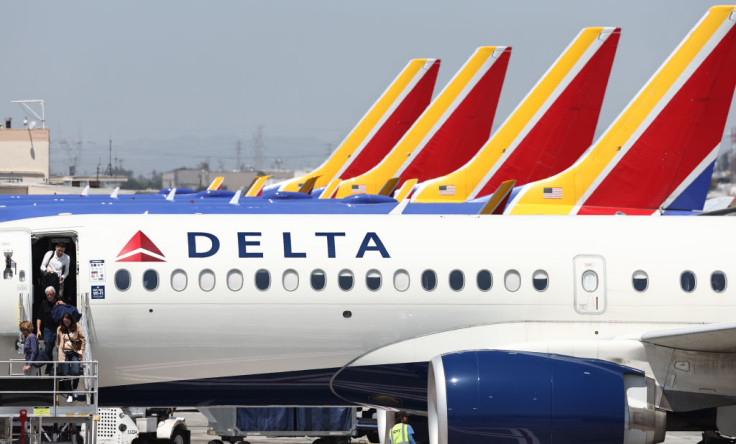Delta Replacing Airbus Jet Engines After Crew Report Health Risks

Delta Air Lines is replacing engines on over 300 of its Airbus A320 aircraft after crew members reported health problems from toxic fumes leaking into the cabin. The airline began the upgrade in 2022 and says the project is now 90% complete.
The concern involves the aircraft's auxiliary power units (APUs), which are smaller engines that supply power when planes are on the ground.
Experts warn that leaks in these units can allow dangerous fumes to seep into the cabin, posing health risks for both passengers and crew.
These fumes can come from oil leaks that burn and vaporize, releasing chemicals into the air system.
According to Independent, flight attendants have reported smelling odors similar to "nail polish" or "wet dog," and some have experienced headaches, dizziness, and even serious long-term health effects.
"I felt like I might die," flight attendant Vanessa Woods said of a past incident involving toxic fumes. Her story is just one of many that pushed airlines and regulators to take the issue more seriously.
Delta to replace hundreds of engine parts after passengers, crew suffer brain injuries from toxic fume leaks https://t.co/eus5W2y1PY pic.twitter.com/MFD2Lc2Xgv
— New York Post (@nypost) September 25, 2025
Delta Testing New Oils to Prevent Cabin Air Contamination
Dr. Robert Harrison, a specialist in occupational medicine at the University of California San Francisco, has treated over 100 flight crew members exposed to fumes, CBS News reported.
He says the chemicals can affect the brain and nervous system, causing symptoms that may not go away.
Delta has not shared how much the engine replacements will cost, but it has confirmed that it's also testing new synthetic turbine oils to reduce the risk of future leaks.
The problem isn't unique to Delta. Airlines worldwide have reported similar incidents over the past two decades. The issue is more common in Airbus A320 aircraft, one of the most widely used jetliners today.
Delta's efforts follow growing concern in the industry about "fume events," which happen when cabin air becomes polluted by engine exhaust or oil vapors.
The "bleed air" system, used in most commercial planes, pulls outside air through the engines before sending it into the cabin — a design that can carry contaminants if leaks occur.
United Airlines CEO Scott Kirby told sources he has been "personally focused" on the issue for over ten years. United has a maintenance program that tracks engine oil levels and replaces seals to prevent leaks.
Delta says it is taking the problem seriously. With more than 200 Airbus A320s in its fleet, the airline plans to finish the replacements soon.
Originally published on vcpost.com



















